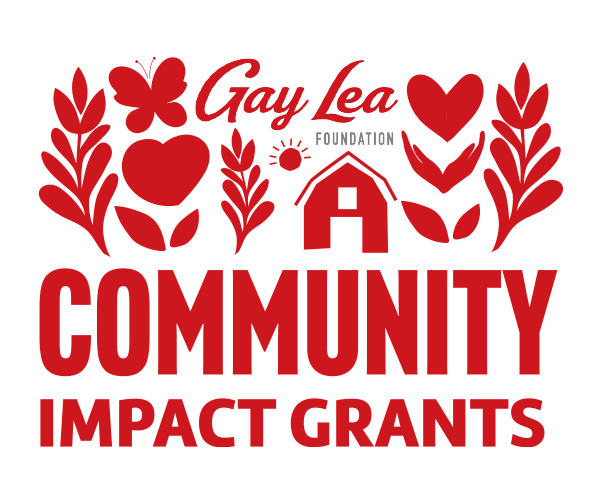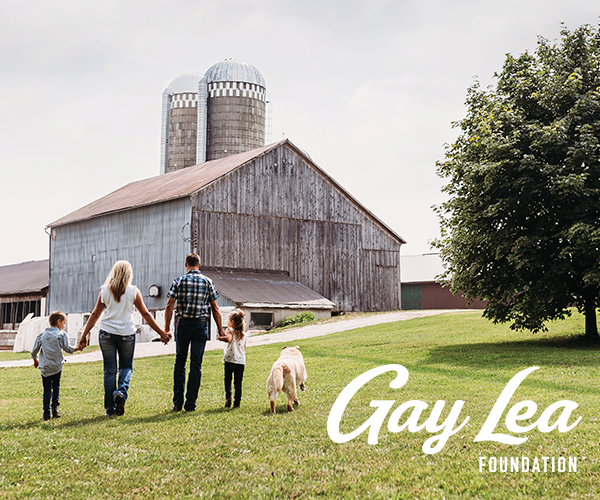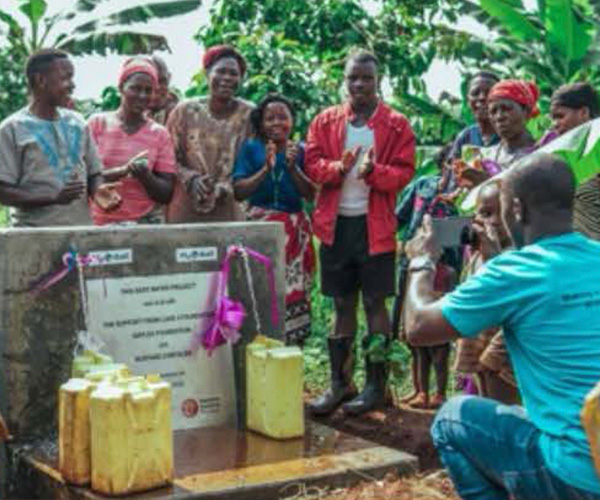In the Longido District of northern Tanzania, a rural area in the heart of the Maasai community, schooling is a major challenge for many adolescent girls.
Faced with a combination of barriers that include extreme poverty, gender discrimination, cultural barriers, and isolation, only 27% of girls complete secondary school, with rates falling as low as 6% among the poorest families (UNICEF, 2019). More than a third of all girls in the district are married by the age of 18 (some as early as 13), with girls from poor families nearly twice as likely to be married early (UNICEF, 2020). Others may be forced to leave school to earn money to buy food for the home.
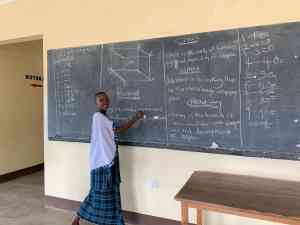 Believing in the power of education to transform lives and communities, the Canadian-based charitable organization Tanzania Education and Micro-Business Opportunity (TEMBO) has been working in the Longido District since 2004 to support fair and equitable access to education and economic opportunity. Partnering with local organizations in Tanzania, their ongoing initiatives include a sponsorship program that has helped more than 510 girls attend secondary school, a women’s microfinance loan program, and academic support programs that help girls succeed (like the TEMBO English Camp sponsored by the Gay Lea Foundation in 2019).
Believing in the power of education to transform lives and communities, the Canadian-based charitable organization Tanzania Education and Micro-Business Opportunity (TEMBO) has been working in the Longido District since 2004 to support fair and equitable access to education and economic opportunity. Partnering with local organizations in Tanzania, their ongoing initiatives include a sponsorship program that has helped more than 510 girls attend secondary school, a women’s microfinance loan program, and academic support programs that help girls succeed (like the TEMBO English Camp sponsored by the Gay Lea Foundation in 2019).
In 2018, TEMBO reached a critical moment in the delivery of their academic programs when they realized that in order to provide the full supports needed for adolescent girls in the Longido District to achieve their academic dreams, they would need an adequate teaching environment and safe, secure accommodation for the girls while studying. The TEMBO Girls’ Hostel was subsequently opened in June 2019 and the GIRL CARE Program (Kujali Kwa Wasichana) was launched shortly thereafter.
“The reality is that some girls in the Longido district need more than tuition, a school uniform, and academic supports to be able stay in school,” says TEMBO Director, Virginia Taylor. “The GIRL CARE program allows us to provide round-the-clock care and support for girls at risk of early marriage because of the cultural traditions in their villages, girls who are at risk of becoming pregnant before or during their secondary school studies, and girls who face significant hardship at home given extreme poverty or the absence of family members who provide stable care.”
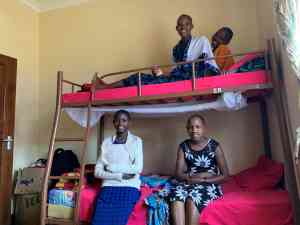 In the fall of 2021, the Gay Lea Foundation donated $7,000 to TEMBO to cover the costs of the GIRL CARE program in Longido for the 2022 calendar year.
In the fall of 2021, the Gay Lea Foundation donated $7,000 to TEMBO to cover the costs of the GIRL CARE program in Longido for the 2022 calendar year.
A recent TEMBO report indicates that the funds were used to hire local day and night matrons, cooks, and security guards, as well as provide school supplies, food, medicine, bedding, clothing, and toiletries for 17 at-risk girls who, together, spent 93 nights in the hostel in 2022.
Funding from the Gay Lea Foundation was also used to support for two additional girls identified as ‘at-risk’ by Longido District, allowing them to stay at the hostel until the Longido District Welfare Office could arrange for them to return to school.
“The contribution from the Gay Lea Foundation provided an opportunity to keep girls safe during their academic school year and provide them with the necessary support while staying at the TEMBO Girls’ Hostel,” said TEMBO Director, Virginia Taylor. “We gratefully acknowledge your support to this critical program that is part of TEMBO’s mission to support girls in northern Tanzania.”
Meet some of the girls who benefitted from the Gay Lea Foundation’s donation to the GIRL CARE program in 2022!
Hannah
During school breaks, Hannah gets on the bus and comes straight to TEMBO.
“When I go home, I live with another family, and it is not good. At TEMBO, I stay with the other girls, and I feel at home. The environment is good for studying. And now that I am in Form Four, I like to help the other girls with their studies. Together, we are a family.”
The GIRL CARE Program has provided Hannah with a safe and secure place to stay since December 2019.
Martha
Martha joined the GIRL CARE program this year and already she knows that this is where she needs to stay.
“My mother has seven children. After my father passed away, we came to live with my grandmother. But it was too much. At home, there is not enough food and there is no time to study. I do not have money for transportation to school and I have no pocket money. And then my mother moved away.”
The GIRL CARE program provides the necessary supports for Martha to focus on her studies and stay healthy.
Selina
Selina lives in a remote traditional Maasai village. She successfully passed the exam at the end of primary school and enrolled in secondary school. But during her second year, everything changed. Her father passed away and life became very difficult.
“People are not familiar with school in my village. It is not safe for me to be at home. It is difficult for my mother because she cannot give me the things I need for school.”
In April 2022, she joined the GIRL CARE program and now comes to TEMBO during the holidays.
“I like to study, to play and to share with the other girls. I want to stay here until the end of Form 4, to stay until I get my results and then I can go to advanced studies. That is what I need.”
Salome
When Salome is not in school, she comes to the GIRL CARE program at TEMBO. She has been attending the program for four years.
“At home there are many challenges. Life is so hard. I have to prepare food, do the laundry, take care of the children. I am very tired and there is no time for me to study. And I am hungry. There is only enough food for one meal each day.”
Salome is very appreciative of all that she receives in the GIRL CARE program.
“I am now in Form Four because I had the support to study.”


 Believing in the power of education to transform lives and communities, the Canadian-based charitable organization Tanzania Education and Micro-Business Opportunity (TEMBO) has been working in the Longido District since 2004 to support fair and equitable access to education and economic opportunity. Partnering with local organizations in Tanzania, their ongoing initiatives include a sponsorship program that has helped more than 510 girls attend secondary school, a women’s microfinance loan program, and academic support programs that help girls succeed (like the TEMBO English Camp
Believing in the power of education to transform lives and communities, the Canadian-based charitable organization Tanzania Education and Micro-Business Opportunity (TEMBO) has been working in the Longido District since 2004 to support fair and equitable access to education and economic opportunity. Partnering with local organizations in Tanzania, their ongoing initiatives include a sponsorship program that has helped more than 510 girls attend secondary school, a women’s microfinance loan program, and academic support programs that help girls succeed (like the TEMBO English Camp  In the fall of 2021, the Gay Lea Foundation donated $7,000 to TEMBO to cover the costs of the GIRL CARE program in Longido for the 2022 calendar year.
In the fall of 2021, the Gay Lea Foundation donated $7,000 to TEMBO to cover the costs of the GIRL CARE program in Longido for the 2022 calendar year.